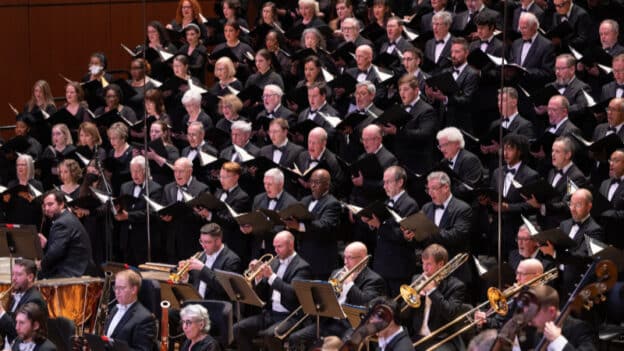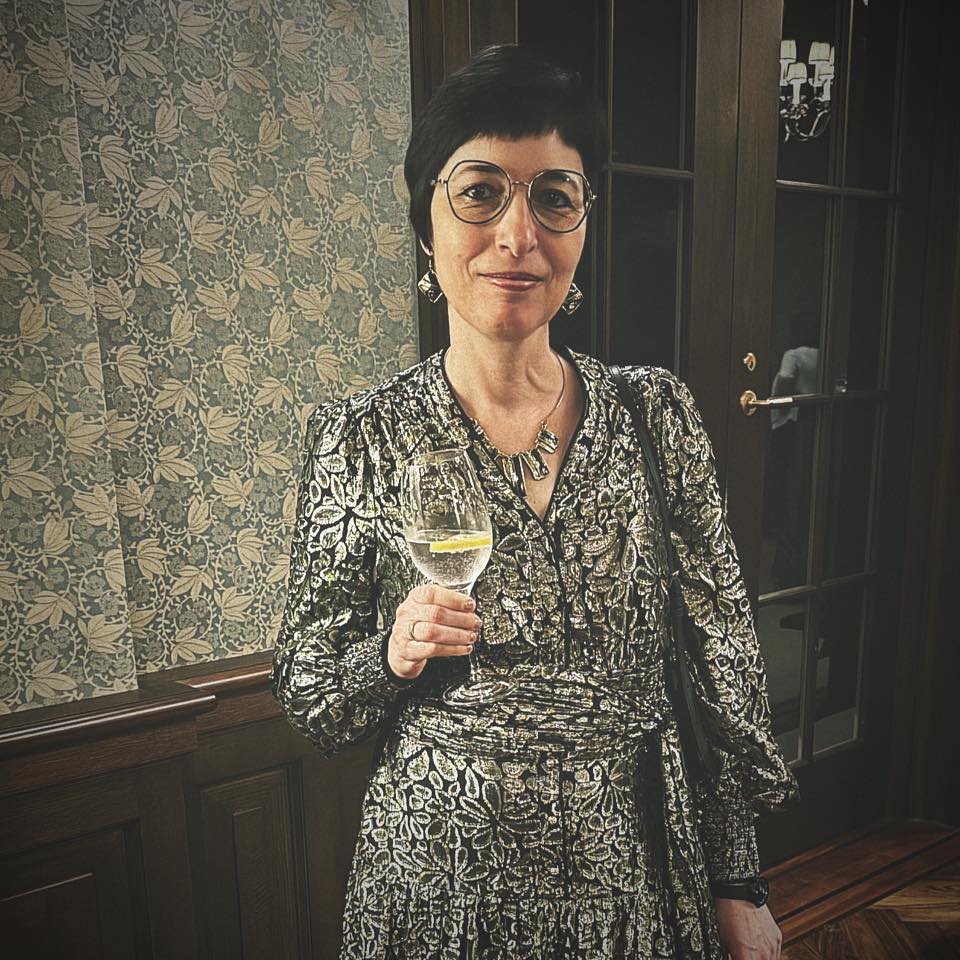First false move by Met union
mainA statement from the musicians union president Tino Gagliardi has been sent our way. Published in an old-school workers’ journal, it amounts to an attack on Peter Gelb’s policy of promoting new operas – which Mr Gagliardi considers avant-garde – and which he claims have been box-office failures.
Quote: He also notes the avant-garde operas Gelb champions to draw younger customers have not done as well at the box office as classic operas have. Gagliardi calls the avant-garde revivals failed experiments.
This statement is the first misstep by the musicians’ union, whose campaign has been managed brilliantly so far from within the Met orchestra.
The job of a union president is to fight for his members’ pay and conditions. He has no voice in the choice or casting of operas. The moment he criticises Peter Gelb for artistic selection, he exposes a weakness in the union’s flank. Mr Tino Gagliardi may be a frustrated music critic, but so long as he’s president of the musicians union he should stick to pay and conditions and leave repertoire to competent directors.

Photo: Metropolitan Opera musicians pass out leaflets to concertgoers at New York’s Lincoln Center. Courtesy IATSE New York locals.





Since Gagliardi is in possession of the Met orchestra committee’s extensive research bearing out his contention, and since AGMA’s Alan Gordon, among others, has voiced similar concerns, Gagliardi is well within his right to say what he has said. Further, the “competence of directors” i.e.Gelb is very much the crux of this current contretemps.
I have to agree with NYMIKE, as ticket sales contribute to the Metropolitan Opera revenue stream and Mr. Gelb’s “bis” performances have been lackluster in producing butts in seats, they have every right to question the programming. Please keep in mind Mr. Gelb was named “artistic director” without an ounce of experience programming opera seasons in any opera house. It has been one of his utter failures as a “leader”.
The interests of journalistic accuracy urge me to note that the photo depicts a scene outside Carnegie Hall, not Lincoln Center.
Thank you. We took the caption from Iatse.
I suspect that Tino’s comments about productions are a snippet of a broader argument, and thus are missing the context. The argument the orchestra musicians have consistently made is that the bulk of the growth in expenses at the Met is not from labor costs, but the costs of new productions (many of which have not panned out, like the Lepage Ring); thus, by looking to cut pay and benefits of artists and musicians, Gelb is aiming at the wrong target.
Most likely, Tino made that full argument, but the reporter chose only to publish the part about new productions.
It’s not the first time 802 has tried to blame the state of things on “avant-garde” compositions. The 802 initiated some weird survey about the state of concert music last year that had some questions clearly biased against new work. They withdrew the thing after people complained.
Maybe Gagliardi just doesn’t like anything new. I guess the Met should stop playing anything that 802 believes may not sell well enough. Maybe Baroque operas should be scuttled too…
You missed the point of this article completely and are now off on your own tangent.
I would argue that both sides have had missteps. Gelb should have never started trying his case in public. As demonstrated by other contentious fights between management, musicians, performers and stagehands in Minneapolis, Philadelphia, San Francisco and New York, a public fight more often has led to lost patrons, reduced donations, lost performances and reduced artistic quality as artists and patrons move on. Peter Gelb is setting himself up as the savior of an art form that by all box office accounts from other companies does not need to be saved. Ticket sales for opera as well other related programs are up, for example, both in Chicago and Houston. Interestingly, the MET’s management has not indicated that reducing pay and benefits for union members will reverse the troubling trend of reduced ticket sales at the MET. The questions are why is that true and how to get the MET moving forward.
On the other side of the argument, the unions have focused on perceived negatives of current management rather than focusing on the actual problems and opportunities facing the MET. The expenses of the MET have substantially increased during Gelb’s tenure not because of increased union pay and benefits but due to the cost of productions and new initiatives that he has introduced. Ticket revenue has not matched the increased expenses.
In this 24/7 world, where internet statements become fact in a nano second, the unions were pushed to respond to Gelb who, with the support of the MET’s marketing machine, is trying his case in the press. The MET has chosen to expose specific parts of union contracts that make it appear that union members are overpaid without putting the actual workload of union members in context. In doing that, two things happened : the union is on the defensive so they are having difficulty refocusing the conversation on the value of quality, the work schedule that far exceeds other performing arts organizations and the basic issue that opera is flourishing, but the MET is not. Secondly, union members went after the board members who write the checks. This was a huge misstep. Union members should understand that no arts organization in the US can survive without the support of its significant donor base. If the MET is truly in fiscal crisis, then it appears that Gelb needs more supervision from his “bosses” (the board ) than he was given. Otherwise, if they are knowingly making investments in the future that will take time to pay off, this fight over union benefits should have never made it to center stage. After all, they are talking about taking away 16% of union pay and benefits which will add up to a total of 3% of the increase in expenses since the beginning of Gelb’s tenure. Attacking those that support the opera instead of talking about better business decisions was a huge misstep.
If the MET is asking the unions to invest in the future, then make that the conversation. How will the union members benefit from the new direction of the MET, that will make the MET and the performers, stagehands etc. better off than they are today? If there is a positive story about the future, then both sides should sit down at the table to examine the investments that need to be made to get this resolved and move forward with both a season and forward progress of the MET. If it is about getting the unions to pay for the MET’s new initiatives without participation in either decision making or future outcomes, then this is likely to end where other failed fights have ended — less of everything for everybody. The MET should not alienate its patrons so they stop coming by ridiculing the unions and locking out musicians. The face of the MET somehow has turned into Peter Gelb (it never was Joe Volpe when he ran the organization). Let’s get this back to those that make the MET what it is — the artists onstage, behind stage and in the pit and the patrons who love and support the MET. Without them there is no MET.
Re Save The Met’s comment: “Please keep in mind Mr. Gelb was named ‘artistic director’ without an ounce of experience programming opera seasons in any opera house. It has been one of his utter failures as a ‘leader’.”
Entirely agree. However, I doubt that Peter Gelb has total freedom when it comes to repertoire. It would be madness if he did not at least consult Levine and his Artistic Administrator. However, clearly he has had a degree of free reign to appoint directors and designers, and it is in this area that his inexperience has been proved time and again. Given that some of his choices have all but bombed at the box office, who is questioning what will happen when these bombs have to be reactivated in future seasons? Will the box office be any better next time around? Highly unlikely. So one of the Met Board’s major concerns must surely be how to get box office numbers up when the public has largely rejected the Gelb blueprint? If I were looking at a projection of ticket sales during the remainder of Gelb’s tenure (8 years?), I would be mightily concerned.
I attended a Ponelle Aida at Covent Garden about 20 years ago sponsored by a major bank. Even with Pavarotti, Burchuladze and Mehta, it received more booing than I have ever heard – during and at the end of the opera. It was a huge waste of money and was never revived. The difference between Broadway productions and opera productions is that the latter have to stay in the repertoire for 20 or more years. Gelb is hoist with his own petard as he cannot continue to mount new production after new production.
May I state the glaringly obvious? Ticket sales have never been a reliable measure of artistic quality. It’s been proven time and time again.
I can appreciate that these negotiations are difficult, and by their very nature must involve a lot of jockeying for position. But this particular tactic by the unions – which was also used in NYCO negotiations – is not only misguided, but disingenuous, and ultimately destructive.
Blaming the unions for the NYCO’s demise rather than the bad board decisions made over the last ten years of its existence, is ludicrous at best.
Kit didn’t blame the unions of the NYCO’s demise. He only noted their myopic arguments about new music.
What is particularly surprising is that the failure of these tactics in Minnesota has not made any impression on Gelb. Well, in the home of Wall Street, maybe he can simply hold the fort forever. At least it might lead to a revival of NY City Opera. Who decided what companies would be forever part of Lincoln Center, anyway? Juilliard is so widely assumed to be the best solely because it is part of Lincoln Center, but it is far from the truth. Manhattan School of Music could have as easily been chosen. Perhaps they should trade places. Perhaps the places should all rotate among various companies.
Well they did, partially — the current home of the Manhattan School of Music (on 122nd Street, across from Columbia University) was, until 1969, the location of the Juilliard School.
When its new building at Lincoln Center was ready, Juilliard decamped for 65th Street and sold its building to the Manhattan School of Music.
Yes, blame the Met’s problems on “avant-garde” operas (as if “new” = “avant-garde”; real sharp there). Why not just program only operas written 125 years ago (that avoids all of 20th century modernism, right?), and watch the youngsters rush in. Nope, sorry, they won’t be doing it.
I guess you could program a few musicals like “The Sound of Music,” as Chicago’s Lyric Opera did, or “Grease,” or “Sweeney Todd,” and boost the numbers, but that won’t be happening at the Met. The union(s) would probably start whining about them being too “modern” or something. Meanwhile, New Yorkers, especially the young ones, will have to go elsewhere or to tiny opera companies in the city, to staged performances, etc., to see anything written since the days of Verdi. Sounds like a plan!